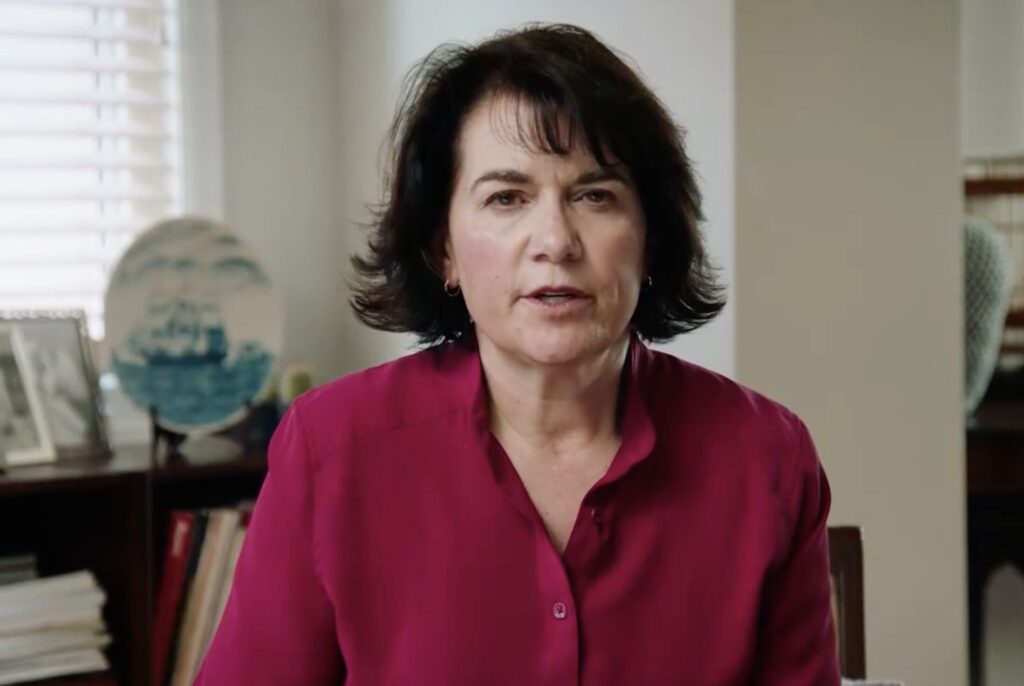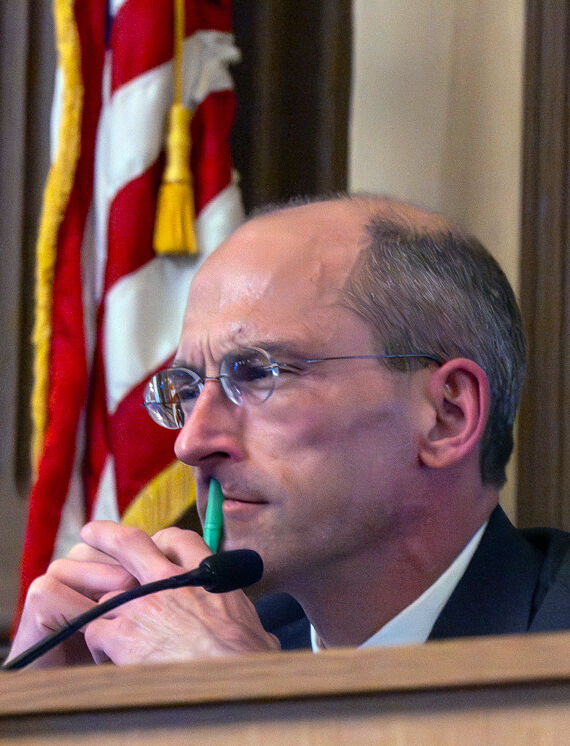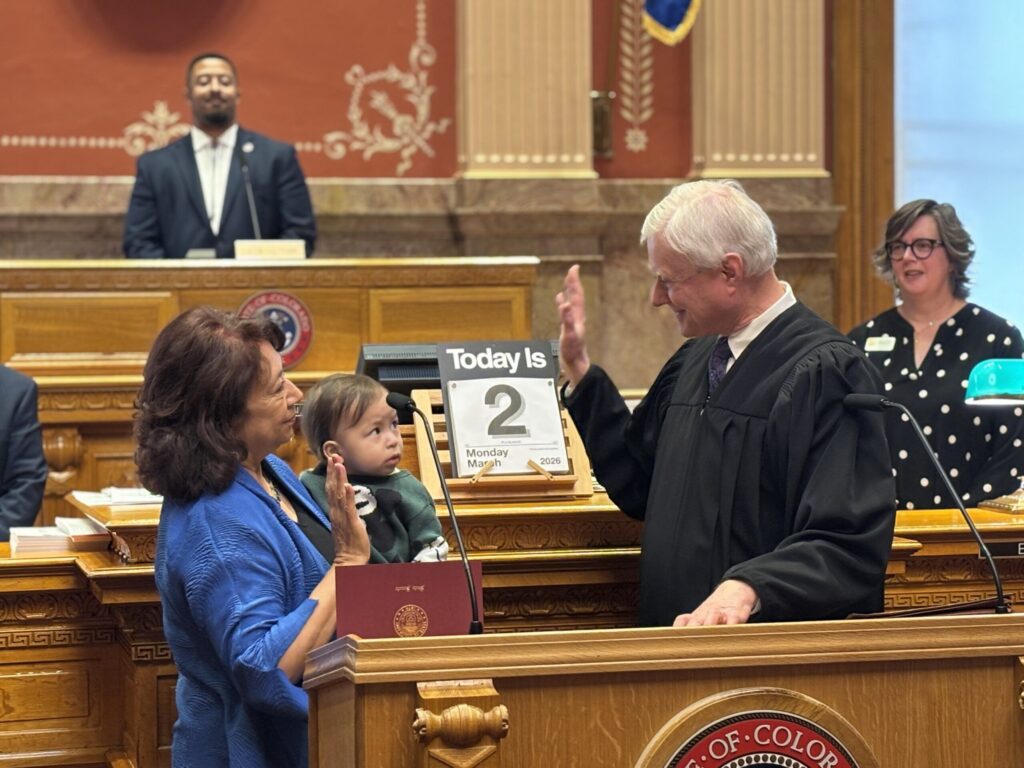Colorado officials credit tenacity, relentless focus on mission for keeping Space Command headquarters

Colorado officials credit persistence, a constant focus on Space Command’s military mission, and the increased importance of that mission in a more dangerous world for keeping the command headquartered in Colorado Springs at the end of a review process that lasted more than two years.
It’s been a long road for an installation that hasn’t moved an inch.
Established in 2019 with temporary headquarters at Peterson Space Force Base, Space Command employs about 1,200 people from across the military services to provide deterrence in space, and, if necessary, to defend U.S. space assets. It is separate from U.S. Space Force, the newest military branch.
When the Pentagon and White House announced on July 31 that the combatant command would stay at Peterson instead of moving to Redstone Arsenal, an Army base in Huntsville, Ala., local and state elected officials say they were as surprised as anyone, in part because it appears the military hasn’t reversed a basing decision of that magnitude in memory.
It took a relentless, bipartisan effort from Democrats and Republicans who stuck to the same points amid a political firestorm surrounding the decision, from former President Donald Trump’s initial order to relocate the command in the final days of his administration to the Biden administration’s lengthy review.
Leading the campaign were Democratic U.S. Sens. Michael Bennet and John Hickenlooper and Republican U.S. Rep. Doug Lamborn, who represents Colorado Springs. Their efforts were bolstered by Gov. Jared Polis, a Democrat, and then-Colorado Springs Mayor John Suthers, along with Lamborn’s Democratic and Republican colleagues in the state’s delegation.
In the end, say congressional sources who had an up-close view of the advocacy process, the final decision turned on the Air Force’s ability to reach full operational capability far faster by finishing the headquarters in Colorado than starting over in Alabama.
“This decision firmly rejects the idea that politics – instead of national security – should determine basing decisions central to our national security,” John Hickenlooper said the day the decision was announced.
That was a challenge, Capitol Hill sources say, especially with Alabama lawmakers trying to inject politics into the debate at every turn.
The partisan whirlwind around abortion politics threatened to overwhelm the Space Command discussion in May when Republicans from Alabama told a national news outlet they were concerned the Biden administration would base its decision on Alabama’s restrictive abortion laws, despite White House officials insisting that wasn’t a factor.
Immediately, Coloradans of all political stripes pushed back.
“I appreciate all the politics swirling around this, but I ultimately believe the decision is going to be made on the basis of national defense,” Suthers told The Gazette.
Lamborn, a vocal opponent of Colorado laws allowing virtually unrestricted access to abortion, made the same point after joining fellow Colorado lawmakers on a call with Air Force Secretary Frank Kendall.
Several members of Colorado’s delegation said they had been assured by Kendall that abortion wasn’t even part of the conversation, despite the Alabama lawmakers’ attempt to spotlight it.
What pushed Colorado’s case forward was the officials “being loud and being creative and being relentless,” a congressional source said.
The Colorado delegation planned to hammer a point made by Democratic and Republican lawmakers from across the country, that going through with Trump’s decision would be the political move and keeping Space Command in Colorado made the most sense from a military perspective.
Bennet, for instance, urged fellow senators to take interest in the dispute, arguing that it wasn’t a parochial issue pitting Colorado and Alabama but, instead, went to the heart of how the government makes decisions.
As part of that effort, Bennet and Hickenlooper took every opportunity to talk Space Command whenever they met with administration officials – including when Bennet showed up at the airport in Eagle County to greet President Joe Biden last fall when he stopped in Colorado to designate a new national monument and wound up having the president’s ear on the ride to Camp Hale.
Suthers and Bennet were also on hand to welcome the president to the Pikes Peak region this spring when Biden delivered the commencement address at the Air Force Academy.
Suthers’ impeccable Republican credentials – a former U.S. attorney, district attorney and Colorado attorney general, he was reportedly on Trump’s short list to head the FBI early in his administration – went a long way toward supporting arguments that keeping Space Command in Colorado wasn’t a partisan turf war, congressional sources said.
Hickenlooper, a former two-term governor with plenty of experience talking up the state, stuck to a simple script, arguing that the key elements in the decision should be which location could be fully operational the fastest, including taking into account the attrition among civilian contractors that would result from uprooting the command to Alabama.
That was the most important factor, it turned out – in large part because the world changed in the years after Trump made the initial decision, heightening the importance of the command and its readiness to respond.
Since Russia invaded Ukraine and China has been saber-rattling over Taiwan, the world has become a more dangerous place, officials said, underlining the advantages of keeping the command where it was already nearly fully operational.
Announcing the decision on July 31, a senior White House official made essentially the same points the Colorado advocates had been repeating.
“Locating Headquarters U.S. Space Command in Colorado Springs ensures peak readiness in the space domain for our nation during a critical period,” the official said.













